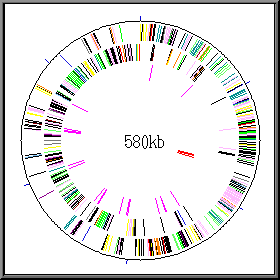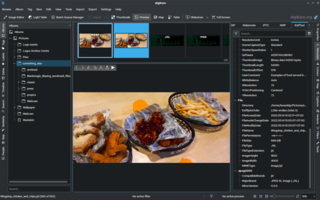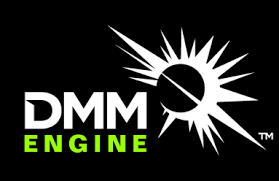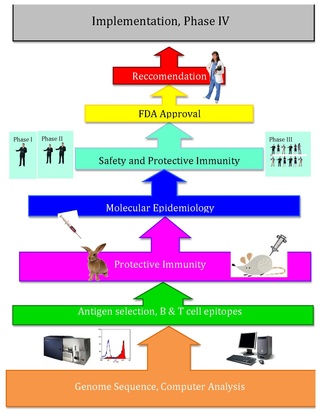Related Research Articles

John Craig Venter is an American biotechnologist and businessman. He is known for leading one of the first draft sequences of the human genome and assembled the first team to transfect a cell with a synthetic chromosome. Venter founded Celera Genomics, the Institute for Genomic Research (TIGR) and the J. Craig Venter Institute (JCVI). He was the co-founder of Human Longevity Inc. and Synthetic Genomics. He was listed on Time magazine's 2007 and 2008 Time 100 list of the most influential people in the world. In 2010, the British magazine New Statesman listed Craig Venter at 14th in the list of "The World's 50 Most Influential Figures 2010". In 2012, Venter was honored with Dan David Prize for his contribution to genome research. He was elected to the American Philosophical Society in 2013. He is a member of the USA Science and Engineering Festival's advisory board.

The GNU Debugger (GDB) is a portable debugger that runs on many Unix-like systems and works for many programming languages, including Ada, Assembly, C, C++, D, Fortran, Go, Objective-C, OpenCL C, Modula-2, Pascal, Rust, and partially others.

Mycoplasma genitalium is a sexually transmitted, small and pathogenic bacterium that lives on the mucous epithelial cells of the urinary and genital tracts in humans. Medical reports published in 2007 and 2015 state that Mgen is becoming increasingly common. Resistance to multiple antibiotics is becoming prevalent, including to azithromycin, which until recently was the most reliable treatment. The bacteria was first isolated from the urogenital tract of humans in 1981, and was eventually identified as a new species of Mycoplasma in 1983. It can cause negative health effects in men and women. It also increases the risk factor for HIV spread with higher occurrences in those previously treated with the azithromycin antibiotics.

Reproduction is the biological process by which new individual organisms – "offspring" – are produced from their "parent" or parents. Reproduction is a fundamental feature of all known life; each individual organism exists as the result of reproduction. There are two forms of reproduction: asexual and sexual.

Celera is a subsidiary of Quest Diagnostics which focuses on genetic sequencing and related technologies. It was founded in 1998 as a business unit of Applera, spun off into an independent company in 2008, and finally acquired by Quest Diagnostics in 2011.

Synthetic biology (SynBio) is a multidisciplinary field of science that focuses on living systems and organisms, and it applies engineering principles to develop new biological parts, devices, and systems or to redesign existing systems found in nature.

BBEdit is a proprietary text editor made by Bare Bones Software, originally developed for Macintosh System Software 6, and currently supporting macOS.

Bruce Spence is a New Zealand actor. Spence has amassed over 100 film and television credits and has also acted in theatre.

Hamilton Othanel Smith is an American microbiologist and Nobel laureate.
In September 2021, Synthetic Genomics Inc. (SGI), a private company located in La Jolla, California, changed its name to Viridos. The company is focused on the field of synthetic biology, especially harnessing photosynthesis with micro algae to create alternatives to fossil fuels. Viridos designs and builds biological systems to address global sustainability problems.

An image organizer or image management application is application software for organising digital images. It is a kind of desktop organizer software application.
Synthetic genomics is a nascent field of synthetic biology that uses aspects of genetic modification on pre-existing life forms, or artificial gene synthesis to create new DNA or entire lifeforms.

Digital Molecular Matter (DMM) is a proprietary middleware physics engine developed by Pixelux for generating realistic destruction and deformation effects. The offline version can support high-resolution simulations for use in film special effects. The real-time version is designed for video games, and other simulation needs by attempting to simulate physical real-world systems. Unlike traditional real-time simulation engines, which tend to be based on rigid body kinematics, the use of finite element analysis (FEA) allows DMM to simulate a large set of physical properties. Developers can assign physical properties to a given object or portion of an object, which allow the object to behave as it would in the real world. In addition, the properties of objects or parts of objects can be changed at runtime, allowing for additional interesting effects.
Mycoplasma laboratorium or Synthia refers to a synthetic strain of bacterium. The project to build the new bacterium has evolved since its inception. Initially the goal was to identify a minimal set of genes that are required to sustain life from the genome of Mycoplasma genitalium, and rebuild these genes synthetically to create a "new" organism. Mycoplasma genitalium was originally chosen as the basis for this project because at the time it had the smallest number of genes of all organisms analyzed. Later, the focus switched to Mycoplasma mycoides and took a more trial-and-error approach.

Reverse vaccinology is an improvement of vaccinology that employs bioinformatics and reverse pharmacology practices, pioneered by Rino Rappuoli and first used against Serogroup B meningococcus. Since then, it has been used on several other bacterial vaccines.
A biorepository is a facility that collects, catalogs, and stores samples of biological material for laboratory research. Biorepositories collect and manage specimens from animals, plants, and other living organisms. Biorepositories store many different types of specimens, including samples of blood, urine, tissue, cells, DNA, RNA, and proteins. If the samples are from people, they may be stored with medical information along with written consent to use the samples in laboratory studies.

Muziic is a media player, FLV encoder and related website, designed to directly access flash video media files from YouTube, without the user having to visit the file's display page on the YouTube website. Muziic can also refer to the organization that created and maintains the project. As the name suggests, the primary focus of Muziic is on accessing YouTube's music resources.

The SEAT Salsa is a concept car presented at the 2000 Geneva Motor Show, as a foretaste of SEAT's new design line under Walter de'Silva. Featuring a three-door coupé body style, it is powered by a 250 PS 2.8L 24 valve V6 engine.

Gene Designer is a computer software package for bioinformatics. It is used by molecular biologists from academia, government, and the pharmaceutical, chemical, agricultural, and biotechnology industries to design, clone, and validate genetic sequences. It is proprietary software, released as freeware needing registration.
Clyde A. Hutchison III is an American biochemist and microbiologist notable for his research on site-directed mutagenesis and synthetic biology. He is Professor Emeritus of Microbiology and Immunology at the University of North Carolina at Chapel Hill, Distinguished Professor at the J Craig Venter Institute, a member of the National Academy of Sciences, and a fellow of the American Academy of Arts and Sciences.
References
- ↑ http://www.edge.org/3rd_culture/church_venter09/church_venter09_index.html Craig Venter shows a screen shot of the software (session 5 at 53 minutes).
- ↑ http://www.ted.com/talks/craig_venter_is_on_the_verge_of_creating_synthetic_life.html Craig Venter shows a screen shot of the software (15 minutes and 50 seconds into the video).